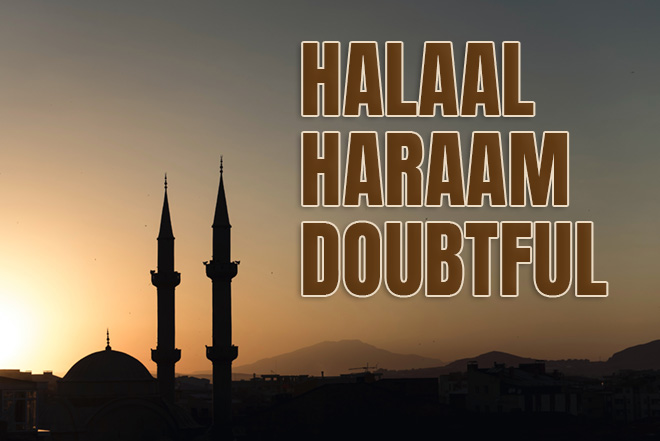Organizing Institution: Cape Town Muslim Events
Contact email: [email protected]
Start Date: February 2, 2022 (7pm)
End Date: February 2, 2022 (9pm)
Cost: R600.00/device
Website: https://ctme.co.za/the-halal-the-haram-and-the-doubtful/
– California – United States
- Wednesdays for 10 Sessions
- Starting 2nd February 2022
- Ends 25th May 2022
- Break during Ramadan
A 10-week course in which attendees will explore the nature of the lawful, the unlawful and all between. Ask and receive scholarly answers to all those nagging questions that are considered too sensitive to mention elsewhere. (Example: Why do certain things have to be considered unlawful? Why can’t everything just be ḥalāl?) Attain to guidance in all your daily affairs in accordance with the teachings of the Qurān, the authentic sunnah and the works of universally acclaimed scholars. The Messenger of Allāh [peace be upon him] said: “The lawful is clear and the unlawful is clear. Between the two are doubtful matters that many people are not aware of…” [Bukhārī: 52 and Muslim: 1599]
Topics will include:
Session One (The Basics): Initial definitions. Why are some things ḥarām and how common is the ḥarām compared to the ḥalāl? Dangers in the commission of ḥarām.
Session Two (Islāmic principles in relation to the ḥarām): 1- Permissibility is the default. 2- Determination of the allowed and the prohibited is the domain and prerogative of Allāh alone. 3- Prohibition carries the corollary of harm. 4-There is sufficient ḥalāl to generally not require the ḥarām. 5-When ḥarām cannot be avoided except by avoiding something else as well then the latter becomes ḥarām also. 6-Using trickery to the compulsory is ḥarām also. 7-Good intentions do not justify the commission of ḥarām. 8-The avoidance of the doubtful. 9-If something is prohibited it is prohibited to all. 10-Necessity renders lawful what is normally prohibited.
Session Three: The sunnah in eating and drinking. Ḥalāl and ḥarām animals. Islāmic slaughtering. Also intoxicants, drugs and smoking.
Session Four (Clothing and adornment): The general laws pertaining to dress for males and females. Hijāb and Niqāb, which of the two is the sharī`ah requirement? The Islāmic rulings on a variety of related issuses such as make-up, jewellery, plucking of eyebrows, dyeing the hair, tattoos, and cosmetic surgery as opposed to corrective surgery.
Session Five (Business and Earnings): The types of lawful income. The prohibition of acquiring stolen property and its exceptions. Islāmic rulings for interest, gambling, the use of credit cards, insurance and health plans etc
Session Six (The Sexual Instinct): The secret of human sexuality. `Awrah. Intermingling of the sexes. Zinā. Dating. Masturbation. Homosexuality.
Session Seven (Husband and Wife): Marriage: the highest form of commitment. Unlawful forms of sexual intimacy. Contraception. Abortion. Divorce. The mut`ah form of marriage. Polygamy.
Session Eight (The Home): The ideal: a LIT house! The importance of the parent-child relationship. Materialism versus Islāmic realism? Photography and the making of statutes. The taking of pets.
Session Nine (Play and Recreation): Finding balance in modern times. Joking and jesting. The virtual reality of social media and the Internet. Games and sports: boxing, karate, chess etc. Music and singing. Movies and the cinema. Holidays or Holy-days?
Session Ten (Interpersonal Behaviour): With other Muslims. With non-Muslims.
Instructor: Moulana Muaadth Allie
Online: Zoom Webinar
Investment (per person) Fee includes:
- Access to all 10 Live sessions
- Notes via email or WhatsApp
- Additional Resources sent via Whatsapp
- Q and A
Payment Option A:
Early Bird Once Off Fee – R600.00 Per device [Pay only once and save R60]
OR
Payment Option B:
3 payments of R220.00 per device



